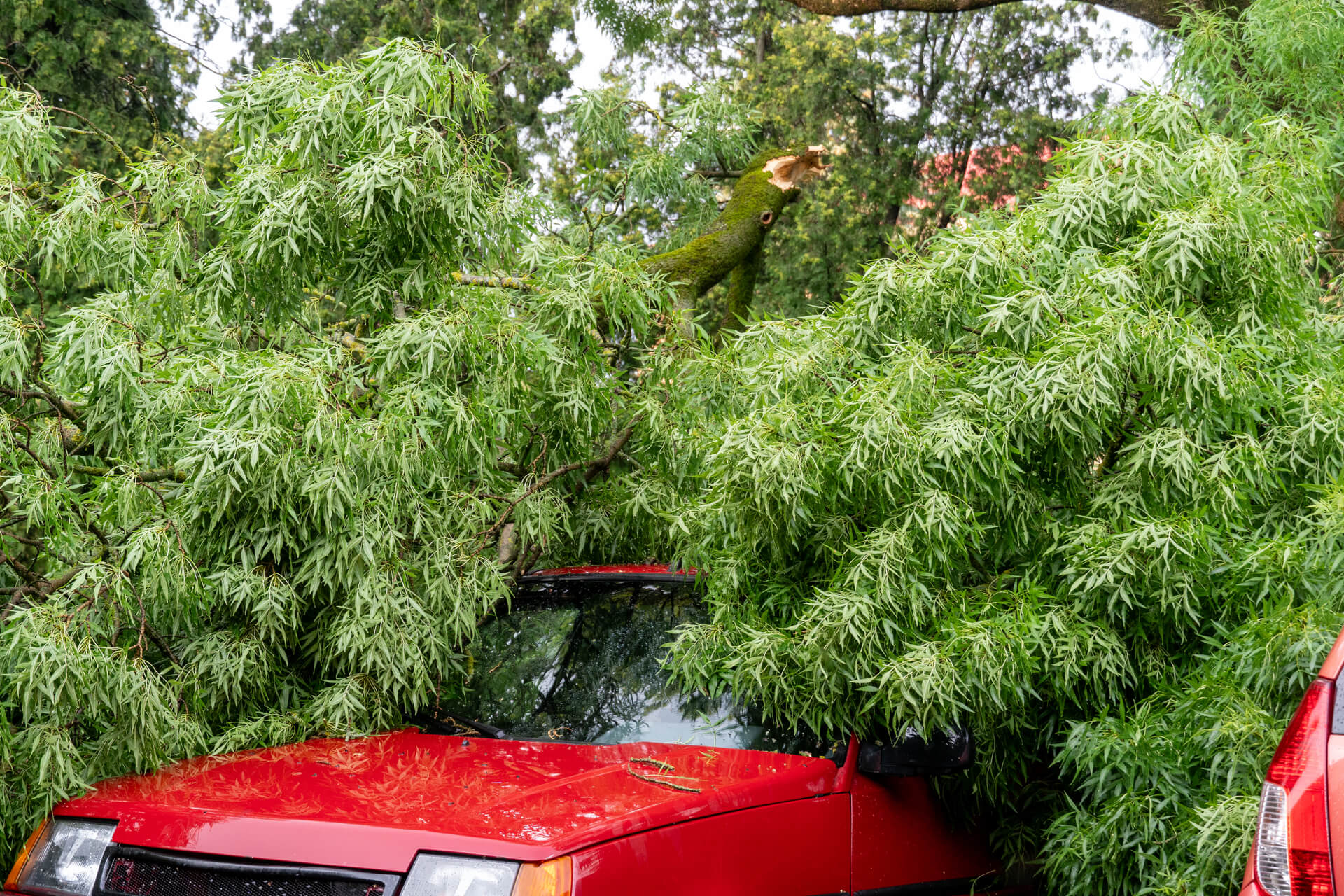
What If You Hit a Deer? (Or a Tree, a Mailbox, or a Shopping Cart…)

by Erin Anderson
You're driving along, minding your own business — and then, out of nowhere, it happens: a deer darts into the road. Or maybe you're backing out of a tight spot and bump a mailbox. Or you return to your parked car to find a shopping cart resting against the bumper.
Whether it's a surprise encounter with wildlife or a split-second parking lot misjudgment, accidents like these are more common than you'd think — and they can leave you wondering what your insurance will (or won't) actually cover.
Here's what to keep in mind before, during, and after one of these low-speed, high-stress moments.
If You Hit a Deer, It's Probably Comprehensive
Even though it feels like a collision, hitting a deer usually falls under comprehensive coverage — the part of your auto policy that covers damage from things like animals, weather, and vandalism.
That means:
- You'll need comprehensive coverage in place before the accident.
- You'll still pay your deductible.
- It may not raise your premium as much as a regular collision would.
But here's the twist: if you swerve to avoid the deer and end up hitting a tree or fence, that's now a collision claim — even if the deer technically caused it. Strange, but true.
For Trees, Mailboxes, and Light Poles — Think Collision
When you hit an object (not an animal), it usually falls under collision coverage. That includes:
- Trees or bushes
- Mailboxes (yes, even your own)
- Curbs, fences, or parking lot barriers
You'll need to have collision coverage on your policy for it to apply — and just like with any accident, your deductible kicks in, and your rates could go up.
Tip: If you're not sure what's covered under your current plan, now's a good time to check.
Parked Car Dings? Depends on What Hit You
If a shopping cart rolls into your car or something falls on it (like a tree branch), that's typically comprehensive. But if you bump into something while parking, or scrape a wall pulling into the garage, you're back in collision territory.
One way to remember it:
- If the damage happened to you while your car was parked = likely comprehensive.
- If you caused it while driving or parking = usually collision.
Should You File a Claim — or Pay Out of Pocket?
Even if your insurance covers the damage, you'll still need to pay your deductible before it kicks in — and for smaller accidents, that can make filing a claim feel… not so worth it.
Here's what to consider before you file:
- Repair cost vs. deductible: If the damage costs $600 and your deductible is $500, you'd only get $100 from insurance — and that small payout could still lead to higher premiums.
- How often you've filed: Multiple claims in a short time (even for minor stuff) can make you look riskier to insurers.
- Who's at fault: If the accident was your fault — say, you backed into a pole or hit your own garage — that's more likely to impact your rates than, say, a tree falling on your parked car.
If you're on the fence, you can always call your insurer to talk through a hypothetical scenario — or check with your repair shop to see if it's cheaper to handle the fix out of pocket.
The Bottom Line
Accidents happen — and they don't always involve other drivers. Whether you hit a deer, a mailbox, or just made a tight turn a little too tight, the right kind of coverage can make all the difference when it comes to what you pay out of pocket.
Not sure what your policy covers (or if you have comprehensive or collision at all)? Now's a smart time to take a look. Comparing quotes or updating your coverage could help you avoid surprise expenses down the road — and give you peace of mind, whether you're dodging deer or navigating the grocery store parking lot.